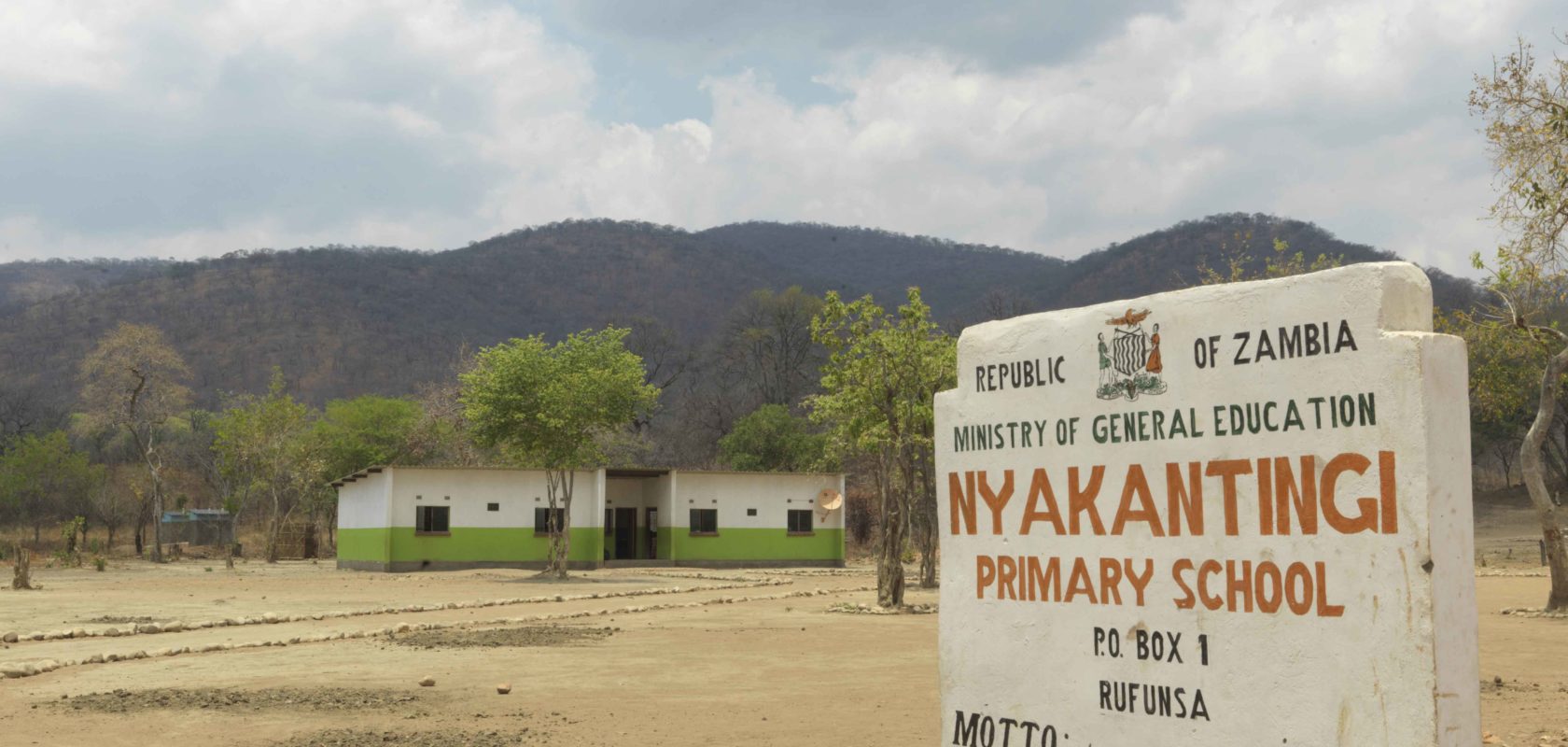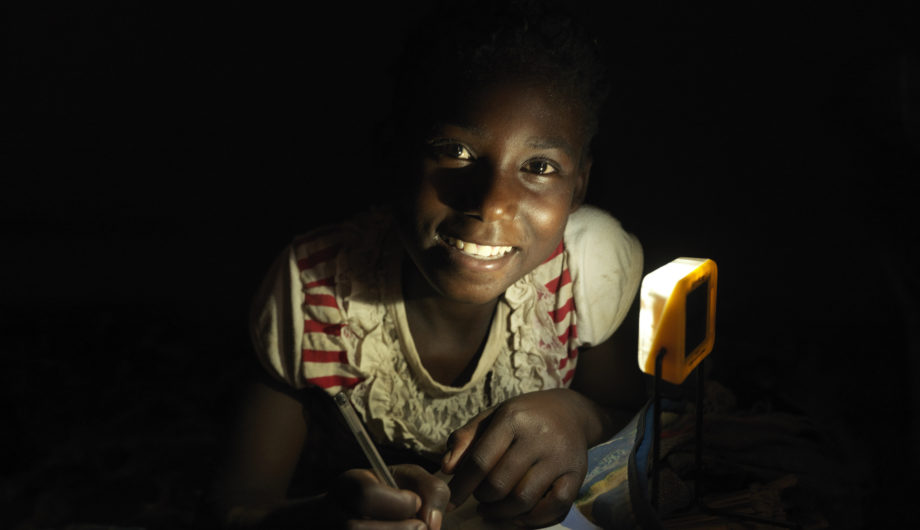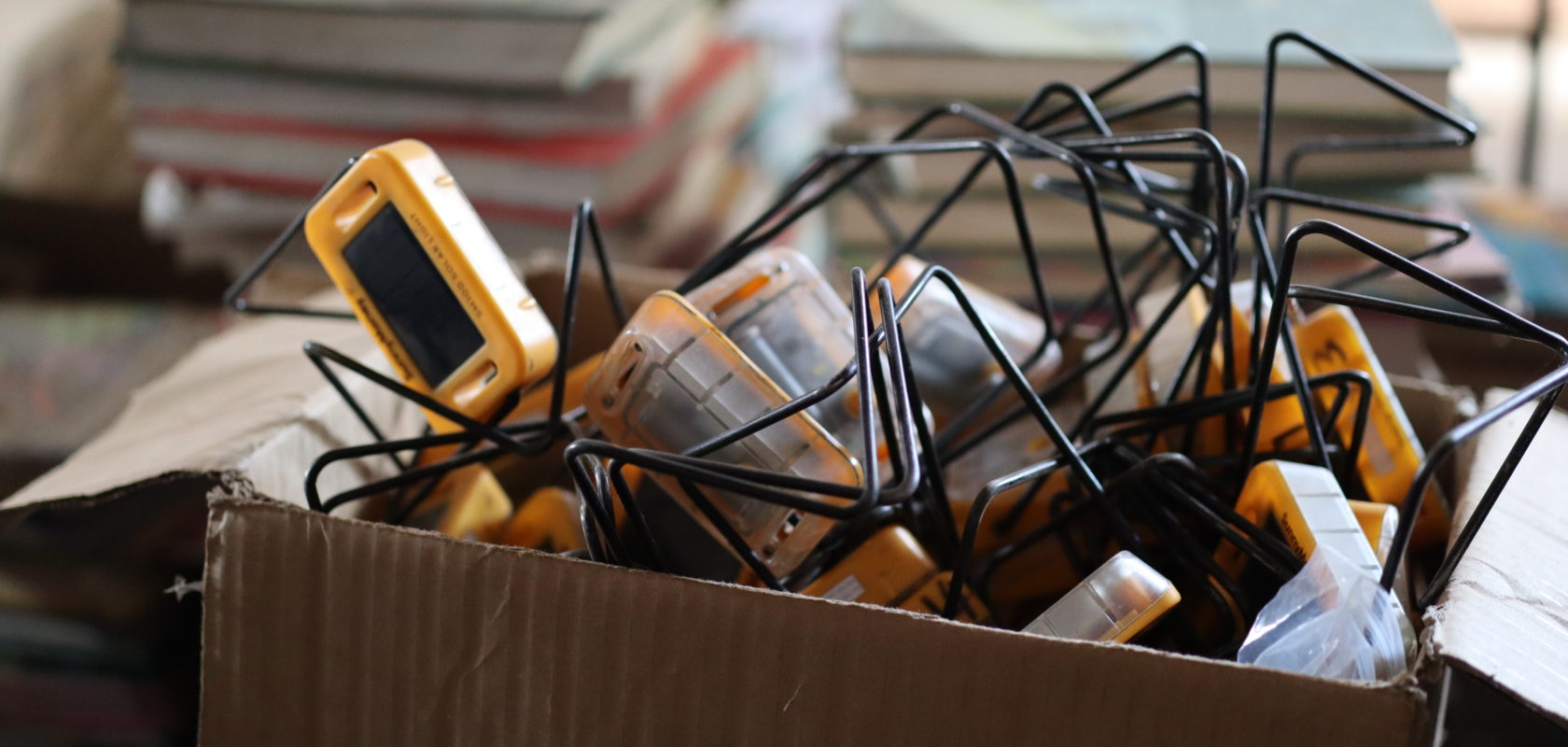“It’s about the passion to teach, and it’s about seeing these children, who has seen to be underprivileged, to get them to a certain level.” Ms. Michelo has been working at Nyakantingi Primary School in Zambia for 2 years. It is a small rural village school, located along a narrow dusty road, far from the main road. There is not much around the school, except for the homes of the families living in the village.
“I live just nearby the school. Actually I built that house with the community. We mounted some bricks and then the community was organising it, the community resource board gave me the materials”, says Ms. Michelo who is actually not from Nyakantingi herself, she used to work in a school in town. “When I heard about that school, I just decided to go and help the rural child – so that’s how I found myself there”, she says.

The passion for teaching is not new for Ms. Michelo. She has dreamt of becoming a teacher and to be able to motivate and help children living in poverty since she was about 10 years old and got the same motivation from her own teacher. “I try to motivate them, I talk to the children, they shouldn’t feel so timid because they come from the village. Certain times I get feedback from them saying ‘No one has ever done it in my family, who am I?’ I tell them ‘You are the change. You can bring that change’, ‘ You can bring your family out of that poverty they are in’.”
“Even when I’m teaching them, I do encourage them saying that they are not so underprivileged that they think. I always give them the example that ‘this president that you are seeing was not born in Lusaka’. So if they come from Eastern province, they can do it!”
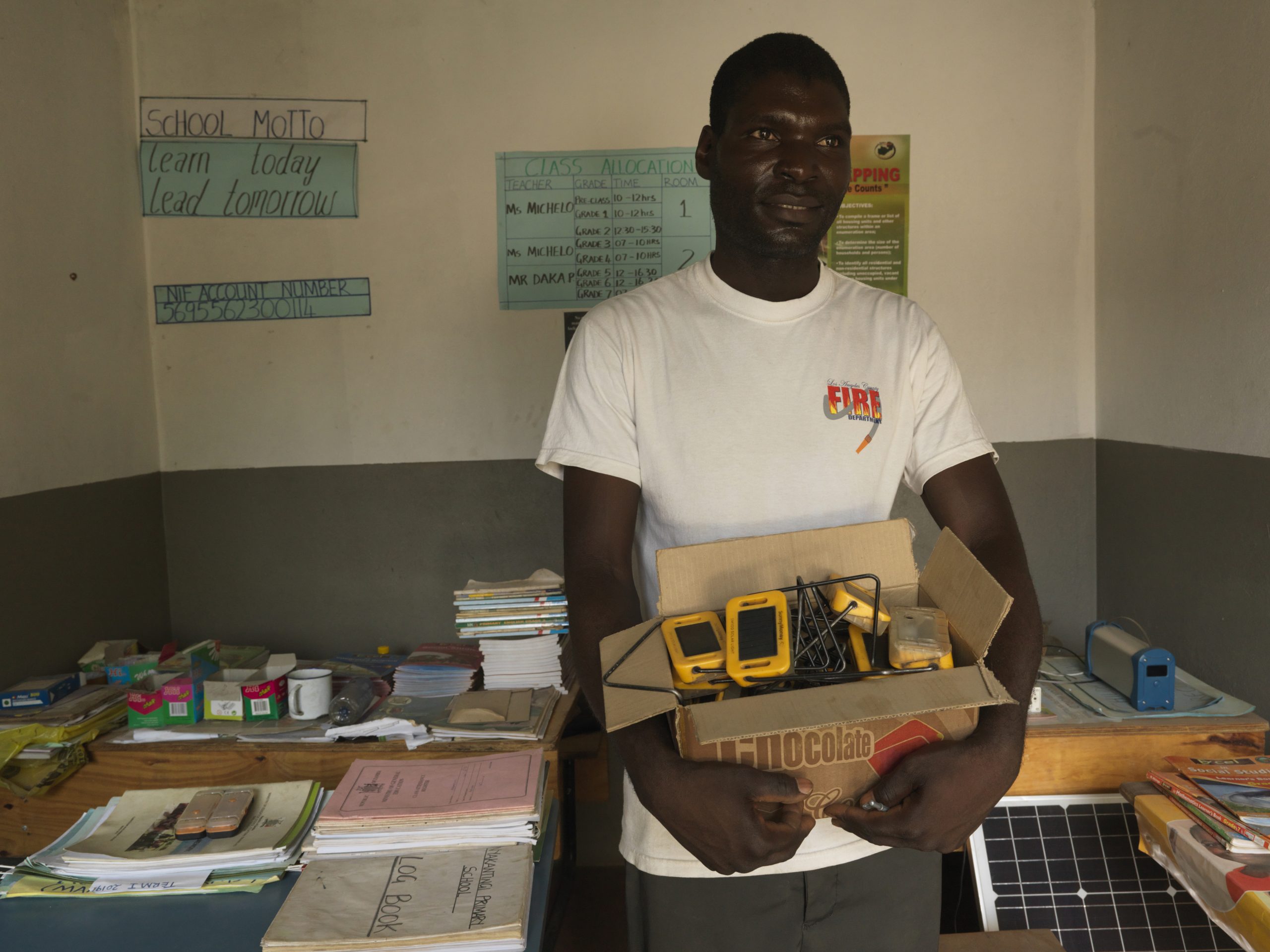
Patrick Daka, a teacher at Nyakantingi Primary School holds a box of Solar Aid lights ready to be distributed to the children so they can complete their homework after dark.
Nyaktangi village is unelectrified, some of the families who can afford it are able to buy candles for lighting in the evening, but for most – when the sun sets at 6pm, it gets pitch black. That is why SolarAid recently introduced a Light Library at the school village. A Light Library works just like a library for books, but for solar lights. It aims to give access to clean and safe light to the students in families who cannot afford to buy a solar light. Since the school got a Light Library, Ms. Michelo says she has noticed a lot of things changing.
“When I was at the school before the lights came, the performance was not so good, for one reason. The people in this village are people who cannot even afford to buy a candle. Meaning that, when it’s dusk the children will just get to sleep, they don’t have time to do some homework of any kind, because it’s always dark.”
She says that it took some time before the children started borrowing the light with them home in the evening. They did not understand what it was, how it worked, or what benefit it could have, but Ms. Michelo came up with an ingenious idea, “I introduced books. I said, ‘I want you to be borrowing these lights as well as getting a book. So you get the book only after getting the light, so that the light will help you to read the book.’ They started coming in numbers, and what I have seen after assessing them… most of them are now able to read. The young ones are breaking through in Zambian language and the older ones are breaking through in English as well.”
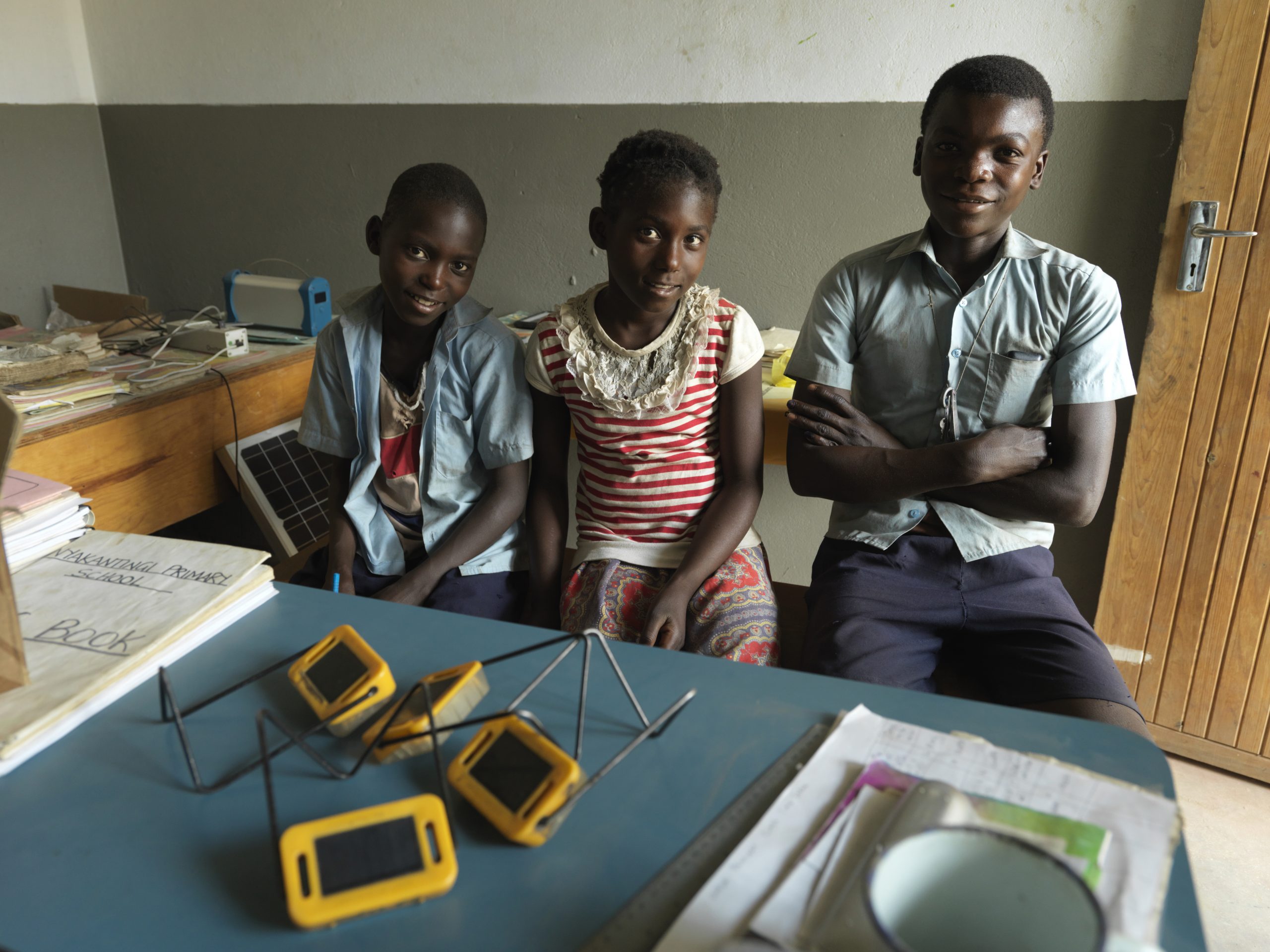
Children sit in the teachers office to access lights form the Light Library.
When there is no light after sunset, it is not only students who suffer. Household chores have to be done before sunset, there is no way to work and earn in the dark, and safety can become an issue. A solar light in the home changes everything, and even if the light is primarily for the child to use for their studies, it benefits the whole family. “I’ve talked to some of the parents. Of course the light benefits the whole family. The father will get it at one time, the mum will get it at one time, but we know it’s for the child… so there is a portion for the child to get to access that light”, says Ms. Michelo.
In the dark, socialising with friends and family also gets difficult, but now that there is light, Ms. Michelo is seeing an important change, “The solar lights have helped the children to bond, they have time to chat in the evening, unlike before when they just go to sleep. The light has brought the family together. With the lights now, you will find them sitting around. I do visits, the light will be in the same hut, and then the father, the brother, the mother the daughter, they’re all there, chatting. When they come together like that, it’s a time to get to know each other. Fathers to know their daughters and mothers to know their sons. And when they know each other like that, they will even know how to handle each other.”
That families are coming together and getting to know each other has helped Ms. Michelo, “It had added to my experience as a teacher, because even when you talk to them in the class now, they are receptive. There are some things that I am telling them, that they are now hearing from their parents. When they come into class, I am also voicing out the same things.”
Derrick is one of the students who has been borrowing a light every night, he now dreams of becoming a teacher – just like Ms. Michelo. Read Derrick’s story here.
A solar light changes everything.
